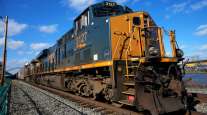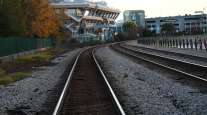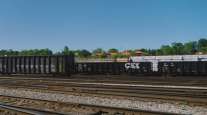Federal Regulators, Railroad Shippers Ratchet Up Pressure on CSX to End Delays

Federal regulators and railroad shippers have turned up the heat on CSX Corp. over repeated service disruptions in a series of letters to and from Washington.
More than 40 organizations sent to chairmen and ranking members of the Senate Committee on Commerce, Science and Transportation and the House Committee on Transportation and Infrastructure on Capitol Hill.
“Rail customers have had to take extraordinary steps at great cost to meet the needs of their customers because CSX has repeatedly failed to pick up and deliver cars. This has put rail-dependent business operations throughout the U.S. at risk of shutting down, caused severe bottlenecks in the delivery of key goods and services, and has put the health of our nation’s economy in jeopardy,” according to the letter.
It also praised the Surface Transportation Board on recently requested weekly calls with CSX to determine the scope of the problems and a timeline on improvements, but it added that more action was “urgently” needed.
Transport Topics reported on the vexing issues surrounding CSX that have resulted in some customers experiencing delays up to four weeks on their shipments. According to a Cowen & Co. survey, many customers have turned to Norfolk Southern or, when unavailable, tank trucks.
The Surface Transportation Board sent a second letter on Aug. 14 to CSX CEO E. Hunter Harrison to express its concerns about the ongoing delays and noted that the railroad company hadn’t provided enough data to prepare for the weekly calls.
“However, much of the initial information provided by CSX was in narrative form without reference to railroad data or service metrics. As such, it has been difficult for STB staff to assess the magnitude of CSX’s problems and the pace of recovery. Indeed, rail service data submitted by CSX … suggests that CSX’s performance continues to deteriorate,” the letter stated.
The STB requested data about on-time departures and on-time arrivals, car connection performance, hump and major yard performance, car ordering, interchange performance at key gateways, last-mile performance, and equipment and personnel issues. It also asked for the weekly number of problem logs for car delays, missed switches and bad order cars.




